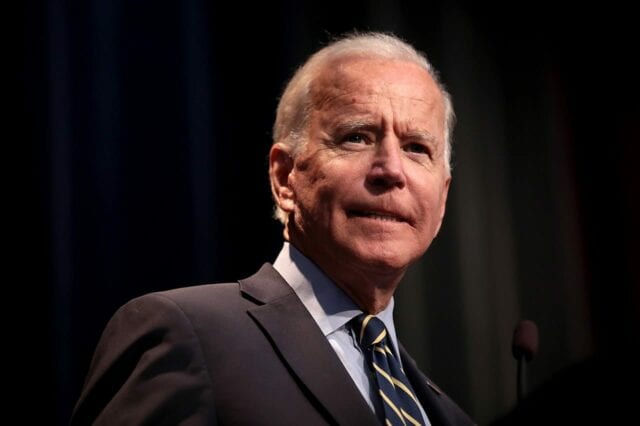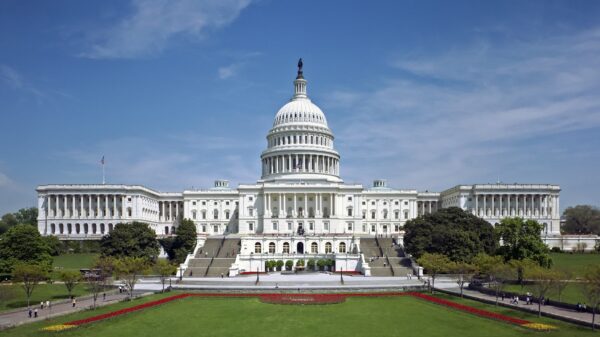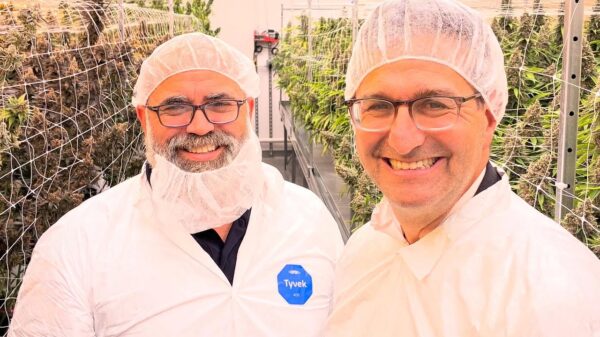A draft bill to decriminalize cannabis federally in the U.S. has been introduced to end America’s decades-long war on drugs, which has disproportionately harmed communities of colour.
On Wednesday, Sen. Cory Booker along with Senate Majority Leader Chuck Schumer and Senate Finance Committee Chairman Ron Wyden, released the Senate proposal, titled the Cannabis Administration and Opportunity Act.
“This is a historic day,” Booker said at a press conference. “This is the first time in American history the majority leader of the United States Senate is leading the call to end prohibition of marijuana, and joining him is the chairperson of one of if not the most powerful committee in the United States Senate.”
The draft bill aims to remove cannabis from the list of controlled substances and allow states to implement their own weed laws, similar to alcohol. Like tobacco, the cannabis market would be regulated and taxed without fear of federal interference and weed businesses would be able to access financial services like any other industry.
.@SenBooker @SenSchumer and I are all in to get this across the finish line in the next year. Voters across the country agree that it's time to end federal prohibition. We'll be working around the clock until we succeed.
— Ron Wyden (@RonWyden) July 14, 2021
Similar to other cannabis state legislation, the draft bill would erase weed-related records of arrests and convictions and allow for resentencing. Grant and equity programs to help communities impacted by cannabis prohibition are included as well.
‘We’re going to get this done’
During the conference, the trio vowed to do everything they can to bring the draft bill into law but acknowledged they don’t have the required votes at this point.
“We have a large majority of our colleagues for it,” Schumer explained, “But we’re going to put our muscle behind it, our effort behind it, and we are going to get this done.”

President Joe Biden hasn’t changed his views on legalization. Photo by Gage Skidmore via Wikimedia Commons
Despite the proposal, President Joe Biden still opposes legalization. When asked if the president endorses the draft bill, White House press secretary Jen Psaki confirmed “nothing has changed” in his views on weed.
Read more: Biden switching stance on weed use sets ‘dangerous precedent’
But Psaki said the president would be “encouraged by steps to implement” decriminalization.
While there are challenges ahead for dismantling the prohibitionist landscape in the U.S., the growing push for changing drug policy is difficult to ignore.
The majority of Americans support cannabis legalization, and even across party lines most agree the war on drugs has been a failure.
Read more: 83% of Americans deem war on drugs a failure and support new approach, poll shows
Other state representatives are also backing marijuana reform bills.
The Marijuana Opportunity, Reinvestment and Expungement (MORE) Act, which aims for similar goals, has been reintroduced to the House of Representatives after it failed in the Senate last year. Meanwhile, a Senate version of the Secure and Fair Enforcement (SAFE) Banking Act, which would prevent federal regulators from punishing banks for providing services to state-legal cannabis businesses, has been introduced.
Read more: US Supreme Court judge calls federal cannabis prohibition ‘contradictory’
Advocacy groups laud end to prohibition but raise some concern
“The days of federal prohibition are numbered,” said Erik Altieri, NORML executive director, in a statement.
He argues it’s time for federal laws to follow the trend of the growing number of states that have legalized cannabis, and to allow consumers to access cannabis without fear of arrest and incarceration.
Read more: 3 US state weed laws kick in as advocates predict more bills to follow
The draft bill is a promising step forward, says Steven Hawkins, executive director at the Marijuana Policy Project (MPP).
“As the nation’s leading organization fighting to legalize cannabis, MPP plans to add its insight, culled from years of advocacy, to the discussion to help shape a national framework that transforms the country’s criminal justice system, mitigates the harms wrought on communities most impacted by prohibition, and provides social and economic equity and opportunity for all.”
While advocacy group Drug Policy Alliance (DPA) commends parts of the bill focused on social equity, reparative justice and reinvestment, it isn’t satisfied with the legislation as a whole.
“We have been clear from day one that any federal marijuana reform bill must be equally comprehensive to the devastation that has been caused by prohibition, particularly in Black, Latinx and Indigenous communities,” says Maritza Perez, DPA’s national affairs director.
“However, work remains to ensure justice does not fall short. To our dismay, the Senate draft contains exclusionary language that ended up getting added to the House-passed MORE Act last year that would continue to subject federal employees to drug testing and deny certain individuals — who have already paid the highest price — the opportunity to expunge their records,” Perez said in a statement.
“In order for this bill to truly end marijuana prohibition in a comprehensive way and begin to repair the egregious harms of the past, we cannot continue to make room for some to be left out because of laws that were unjust and racist, to begin with.”
The DPA calls on the Senate to remove that language.
Follow Kathryn Tindale on Twitter
kathryn@mugglehead.com














